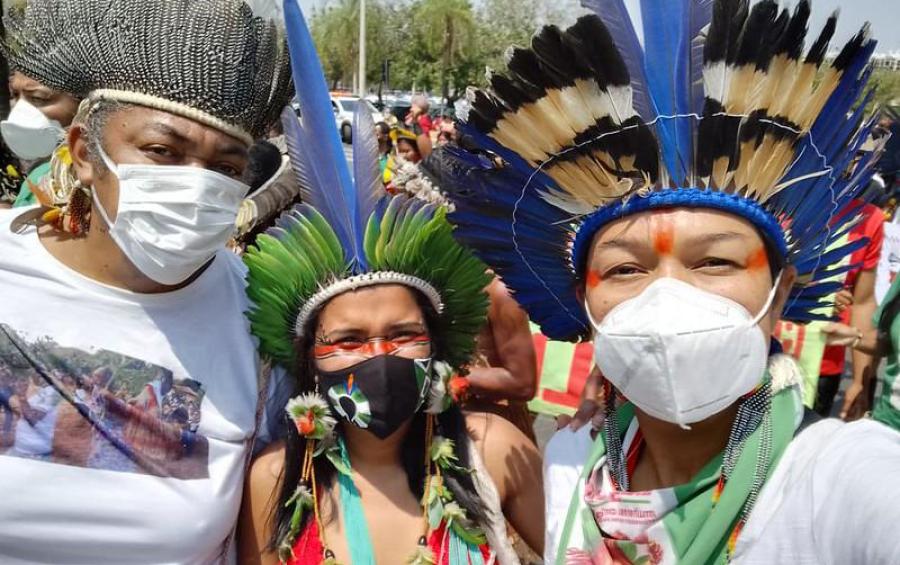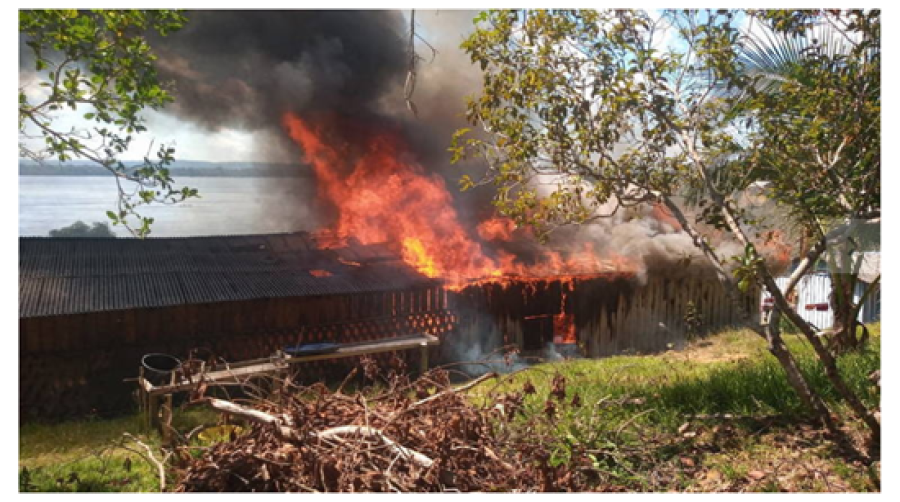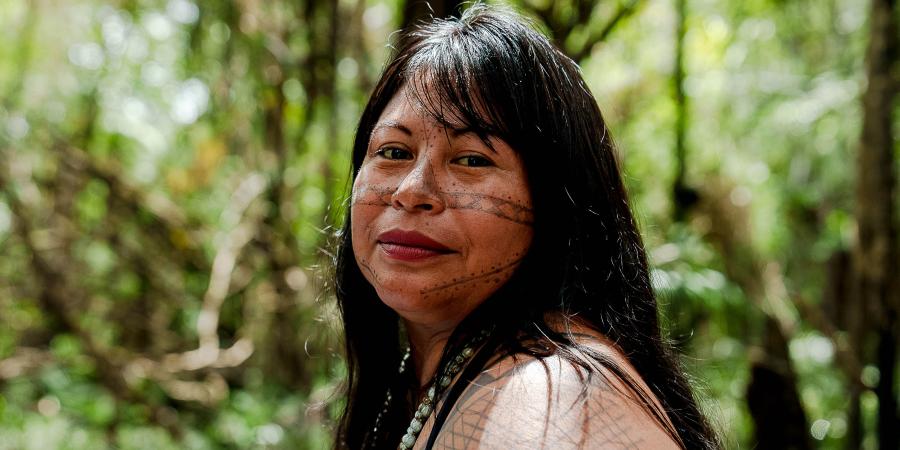We, indigenous peoples Juruna, Xipaya, Arara of the Volta Grande, Kuruaia and Xicrin of the region of Altamira, Guajajara, Gavião, Krikati, Awa Guajá, Kayapo of Mato Grosso and Pará, Tembé, Aikeora, Suruí, Xavante, Karintiana, Puruborá, Kassupá, Wajãpi, Karajá, Apurinã, Makuxi, Nawa of Acre, Mura from Amazonas, Tupaiu, Borari, Tapuia, Arapiuns, Pataxó, Tupiniquim, Javaé, Kaingang, Xucuru, Marubu, Maiuruna and Mundukuru from the states of Amazonas and Pará and from the other states of the Amazon region and Brazil, farmers and riverine peoples and inhabitants of the towns of Itaituba, the Tapajós region, Trairão, Medicilândia, Uruará, Placa, Rurópolis, Gurupá, Altamira, inhabitants of the villages of Cobra-Choca (km45 sul), KM 27 south, Paratizão (km 23 south), Assurini and of the communities of Arroz Cru, Saint Luzia and São pedro, representatives of the indigenous organizations and of the COIAB, APIB, APOINME, ARPIMSUL, MAB, Via Campesina, the Movimento Xingu Vivo para Sempre, pastoral organisations and NGOs, all gathered at the Acampamento Terra Livre Amazônico (Amazonian Free Land Camp), at Altamira, state of Pará, from August 9 to 12 of 2010, to fight for life, for culture, biodiversity and for the forest and to discuss the impacts of major government projects in the region, especially the hydroelectric power plant of Belo Monte, came to the public to affirm, denounce and to take on:
1) We manifest ourselves in favor of the preservation of the Xingu river and all rivers of Brazil, especially those that pass through Indigenous lands.
2) We manifest ourselves in the strongest of terms against the construction of the hydroelectric plant of Belo Monte on the Xingu river and other enterprises that attack and damage our communities and destroy the environment, for example: the hydro electrics of Jirau and Santo Antônio in the Madeira river, the Santa Izabel hydroelectric on the Araguaia River, Culuene river, the Estreito hydroelctric, the Transposition of the São Francisco river, Ribeirão Tabajara, the asphalting of the high ways BR317, BR163, BR156, BR319, BR429 and BR421, Urucu-Porto Velho, among others.
3) The Growth Acceleration Program (PAC) of the Federal government plans to implement 426 projects that incur on indigenous lands, threatening to wipe out indigenous peoples living in isolation. For the Amazon over 300 new hydro electrics are being planned. A true madness for those who live in the Amazon having land and water as a safeguard of life for present and future generations.
4) Still alive in our memory are the destruction and death caused by major projects implemented by authoritarian governments of the military dictatorship as the construction of the Trans (BR 230), the BR 174, 364 and 163, as well as the Tucurui and Balbina hydro electrics. Indigenous peoples and traditional communities were hit hard. Indigenous peoples like the Arara, Parakanã, Waimiri Atroari reached the brink of extinction.
5) The model of economic development for the benefit of a few still remains the same, as well as the authoritarian implementation of large projects. Belo Monte is a clear example. The environmental impact studies were done to justify this project and not to measure the actual social and environmental impacts. Indigenous peoples and traditional communities that would be affected were not properly heard as determined by the Federal Constitution, the ILO Convention 169 and the UN Declaration on Indigenous Peoples, nor were the scientists who warn of the serious systematic failures of the project.
6) Part of the perverse strategy of this type of development are disinformation, lies, disrespect for the law, the criminalization of indigenous and popular leaders, as well as actions of seduction and promises made to communities.
7) Indigenous peoples in the struggle for their land rights are wrongly accused of being violent, obstacles to the development and of being manipulated by NGOs, in order to confuse people about what really happens in the Amazon.
8) We reflected during the four days of the Acampamento Terra Livre amazônica on strategies to combat Belo Monte and other large enterprises.
9) We want to alert everyone that the Amazon will be irreversibly damaged should the madness of over-exploitation of its natural resources continue. This way, the commitments made by Brazil in international treaties on climate, will not be fulfilled.
10) We collectively assume the commitment to strengthen the alliance of the indigenous peoples, riverine and other communities of the Amazon in the fight to ensure the integrity of its territorial space and to build the future of the region based on their experiences of life.
11) We call on everyone to the common and articulated and organized confrontation against the Belo Monte and other undertakings planned against the Amazon.
12) We request the support of the countryside and city societies, for the life of the Amazon is at risk.
City of Altamira, state of Pará, Brazil, 12th of August 2010
"Every time we come together we strengthen our movement. We should not fear the police, the farmer, or anyone who's threatening nature. Nature is life, she has sustained us until today, so we have to defend her as the father and mother that gives us life." --Raoni Kayapó, chief of the Kayapó people
Source: Conselho Indigenista Missionário (Cimi)



